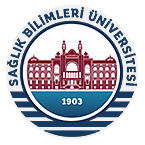ABSTRACT
The purpose of this study was to demonstrate the antiangiogenic efficacy of the two agents (Pegaptanip sodium and Bevacizumab), which are commonly used in the treatment of age-dependent macula degeneration in chick chorioallantoic membran model. Fertilized eggs obtained from Atak-S type chicken were used. The eggs were kept under appropriate heat and humidity until the fifth day on when the application would be performed. Pegaptanip sodium and Bevacizumab were applied to eggs at different concentrations, and the eggs were kept under an appropriate condition until the evaluation of the results. Results were evaluated at the 48th hour after application. Although both of the two agents have affirmative effects on age-dependent macula degeneration in humans, they did not have any antiangiogenic effects in chick chorioallantoic membran model. These findings may have resulted from inadequate doses of drugs chosen or from different features of human and chick vascular endothelial growth factor isoforms, and thus, more detailed studies are needed to perform.



